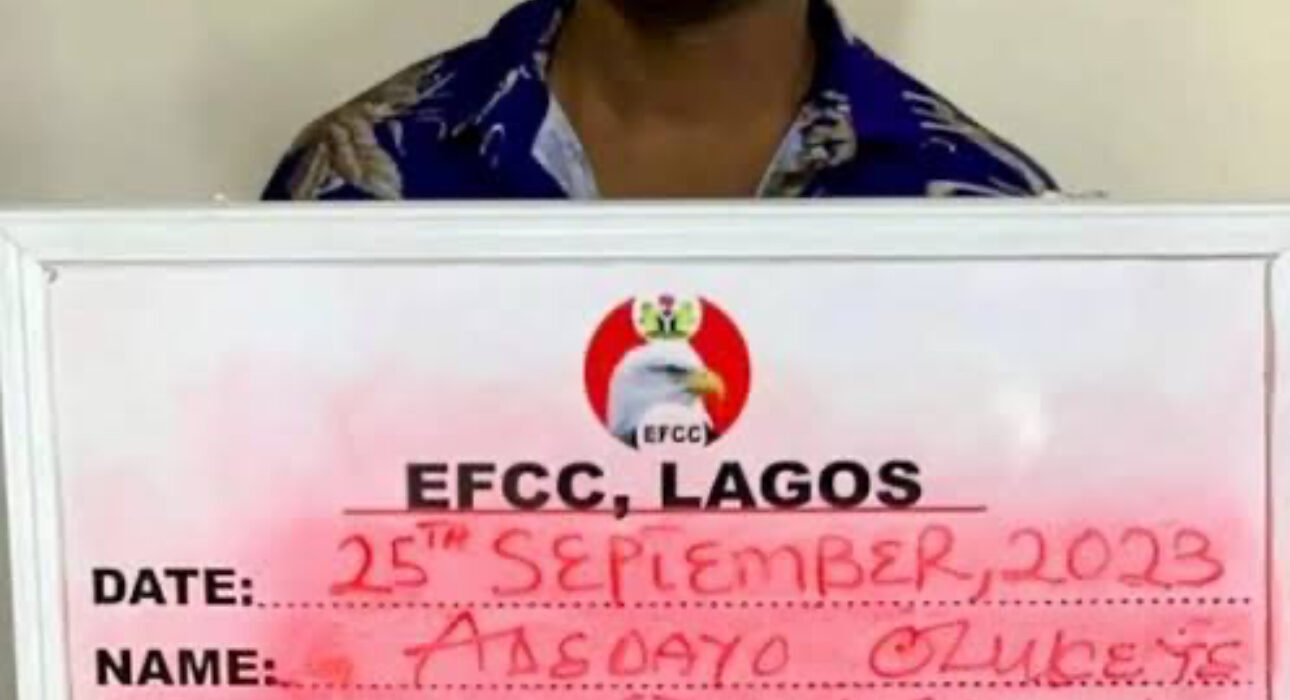Nigerian Sentenced to 76 Years for Child Pornography, Cybercrime, Fraud

Justice Alexander Owoeye of the Federal High Court in Ikoyi, Lagos, has convicted and sentenced a Nigerian man, Olukeye Adedayo, to 76 years in prison for multiple internet-related offences, including the distribution of child pornography, cyberstalking, fraudulent impersonation, and obtaining money by false pretences.
The judgment, delivered on Thursday, June 19, 2025, followed a comprehensive trial that began on June 5, 2024. Adedayo had initially pleaded not guilty to the 18-count charge filed against him by the Lagos Zonal Directorate 2 of the Economic and Financial Crimes Commission (EFCC), but was found guilty on all counts.
According to the EFCC, Adedayo created an Instagram group titled “Expose Janjua Robin N¥des”, where he circulated child pornographic material under various aliases, including hrm87, charlotte708, and harlliott_716. His activities, investigators revealed, extended beyond Nigeria and involved victims from different parts of the world, which prompted international cooperation—most notably with the Royal Canadian Mounted Police (RCMP).
The prosecution, led by EFCC counsel Bilkisu Buhari, presented two key witnesses: Wahid Hamidi, a police sergeant with the RCMP, and EFCC operative Saidu Yakubu. Both testified to Adedayo’s involvement in cyberstalking, impersonation, and financial deception.
The court also admitted extensive digital and forensic evidence, further strengthening the case against him.
Justice Owoeye, in his ruling, sentenced Adedayo as follows:
• 2 years each for child pornography and cyberstalking offences
• 4 years each for charges related to money laundering
• 7 years each for obtaining property by false pretences
Though the cumulative sentence amounted to 76 years, the court ordered that all terms would run concurrently, meaning Adedayo will serve a maximum of seven years in prison.
The EFCC hailed the ruling as a landmark victory in the fight against cybercrime and online exploitation.
The case, officials noted, is particularly significant for its demonstration of cross-border cooperation and the increasing sophistication with which international digital crimes are being tracked and prosecuted.
“This conviction reinforces our resolve to combat all forms of cybercrime and exploitation, particularly those targeting vulnerable individuals online,” the EFCC said in a statement.
As Nigeria continues to grapple with rising cases of internet fraud, the Adedayo conviction is being viewed as a strong message to cybercriminals both within and beyond the country’s borders.








